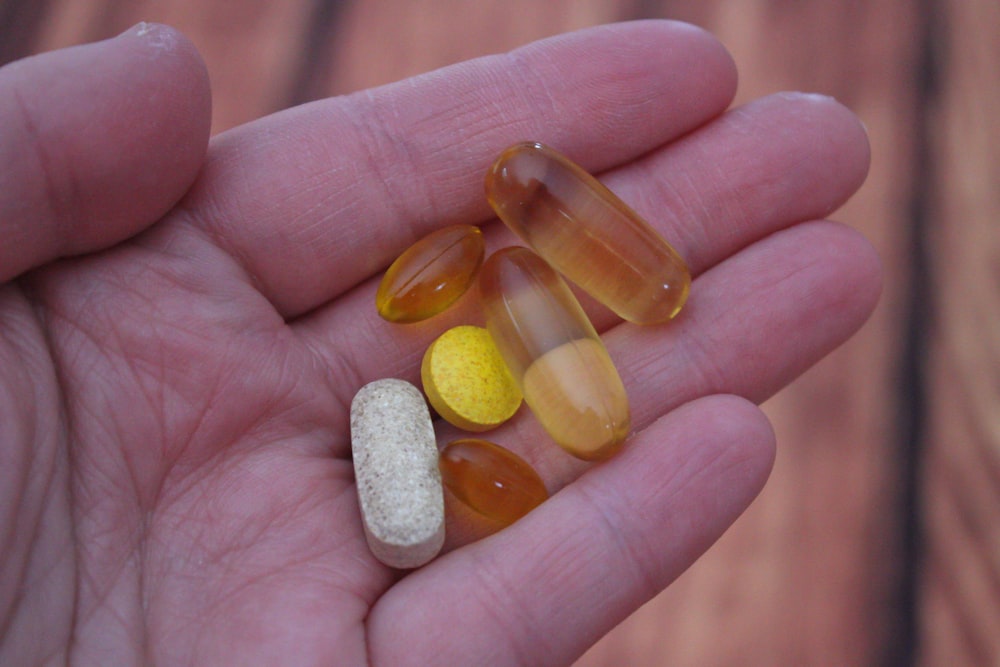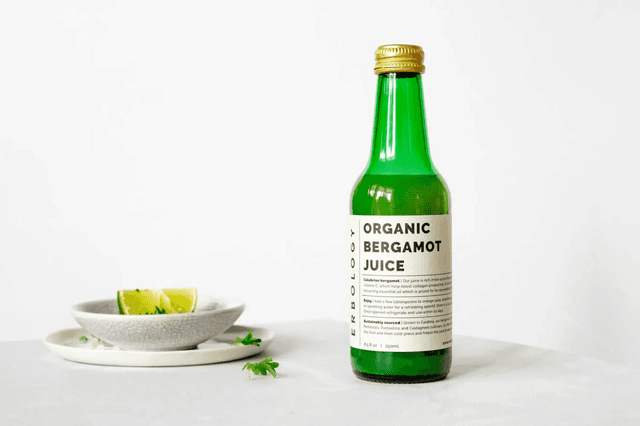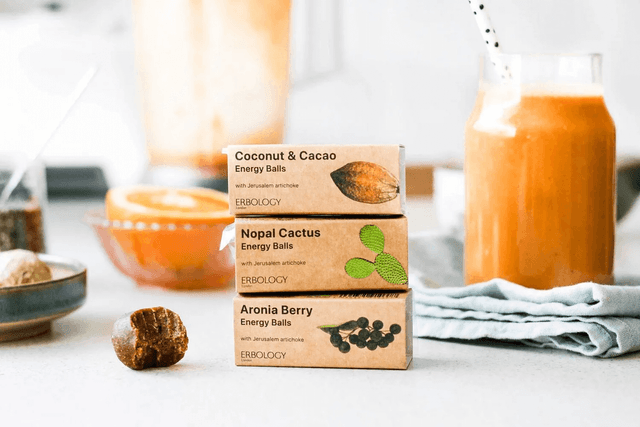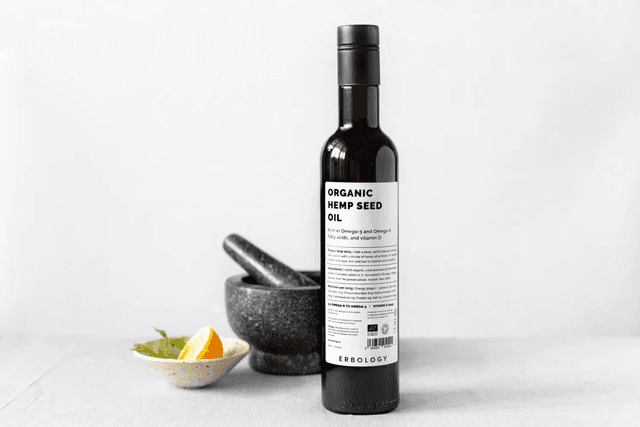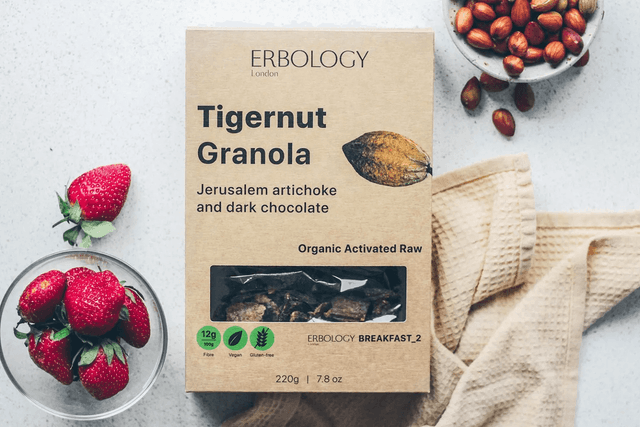24 Feb 2022
What vitamins are good for energy?
What is energy?
As human beings, energy is available to us in the form of food. Energy allows our bodies to perform all its functions in order to keep us alive! Most of us would agree that we associate energy with feeling positive, full of vitality and ready to take on life’s challenges. The opposite of energy can be considered fatigue, which we associate with feeling low and lethargic.(1)
B vitamins and energy production
B vitamins are essential in the production of energy in the body. The energy production system is a complex process involving several steps. Moreover, if any of the B vitamins are missing at any point along the process, this would lead to potentially harmful consequences to our health and metabolism.
B vitamins involved in the energy production process include B1 (thiamine), B2 (riboflavin), B3 (niacin), B5 (pantothenic acid), pyridoxine (vitamin B6), biotin (vitamin B7) and cobalamin (vitamin B12).(2)
What vitamins are good for energy?
Most B vitamins are essential for energy and play an important role in keeping our bodies functioning correctly.
In the UK, nutrition requirements are determined by a set of Dietary Reference Values (DRVs) which are essentially estimates of the energy and nutritional requirements of healthy people. Moreover, each country has their own set of reference values. These are not intended as goals or recommendations for individuals.
In order to gain a general understanding of how much of a certain nutrient is contained in a particular food, it’s useful to learn about the Reference Nutrient Intakes (RNIs) for the nutrient of interest. RNIs refer to the amount of a specific nutrient required so as to meet the nutritional needs of almost everyone in a group (97.5% of people).
Let’s have a look at the RNIs for the different B vitamins that are essential to our diet. For reference, we will look at the requirements of adult males and females between 19 and 50 years of age. In fact, RNIs are categorised and tailored by gender and age groups.(3)
Thiamin - Vitamin B1
Vitamin B1, more commonly known as thiamin, contributes to normal energy-yielding metabolism. It plays a critical role in the growth and function of the cells in our body. Thiamine enables energy from food to be transformed into energy that can be utilised by our brain and heart. In addition, our body needs this vitamin to process macronutrients (carbohydrate, fat and protein).(4)
For thiamin, the RNI is 1mg/day and 0.8mg/day respectively for males and females. Thiamin is widely found in a variety of foods. In fact, good sources include whole grain breads, nuts, peas, bananas, oranges, sunflower seeds, linseeds and jerusalem artichokes. Excellent food sources of thiamine include beans, peas and nuts. Other sources include dairy products, eggs and dried fruit. (5)
Riboflavin - Vitamin B2
Vitamin B2, also called riboflavin, plays a key role in cell growth, energy production and metabolism of fat.(6) Riboflavin is a water-soluble vitamin which means it is immediately used by the body and not stored. Excess amounts are filtered through the kidneys and excreted in urine.(7) The RNI for riboflavin is 1.3mg/day and 1.1mg/day respectively for men and women.
Good sources of riboflavin include milk, eggs and plain yoghurt. The best sources for a plant-based diet include mushrooms, quinoa, almonds and nutritional yeast. Furthermore, riboflavin is naturally found in meat, milk, yoghurt, certain nuts and green veggies.
A fun fact about riboflavin is that it is sensitive to light. This is why milk is no longer stored in glass bottles! If vitamin B2 is exposed to excessive sunlight, its stability can be altered. Nowadays milk is stored in opaque cartons or bottles in order to stay protected from the light.
In addition, not only does riboflavin contribute to normal energy-yielding metabolism, it also plays a major role in the reduction of tiredness and fatigue.(8)
Niacin - Vitamin B3
Vitamin B3, known as niacin, contributes to normal energy-yielding metabolism. Niacin is found in wheat flour, eggs and fish. In addition, plant-based foods including legumes, nuts and grains provide approximately 2-5mg of niacin per serving. The RNI for niacin is 17 and 13mg/day respectively for adult males and females.
Pantothenic acid - Vitamin B5
Vitamin B5, known as pantothenic acid, is an essential vitamin which helps to release energy from the food we eat. This vitamin is naturally found in various foods, good plant sources include mushrooms and avocado. Breakfast cereals are also sometimes fortified with pantothenic acid. There is currently no RDI for vitamin B5, however, eating a varied diet should ensure that you are meeting all your needs.
Pyridoxine - Vitamin B6
Vitamin B6, also known as pyridoxine, contributes to reducing tiredness and fatigue. It also plays a role in helping the body to form haemoglobin. Haemoglobin is an important component of our red blood cells that carries oxygen around the body. Vitamin B6 requirements are 1.4mg/day and 1.2mg/day respectively for men and women. Plant-based sources of vitamin B6 include bananas, oats, soya beans, wheatgerm and peanuts.
Biotin - Vitamin B7
Vitamin B7, more commonly known as biotin plays an essential role in digesting fats, carbohydrates and proteins from food. There is currently no recommended dietary intake for biotin. This is because there is a lack of evidence regarding the optimal amount required by most healthy people. Biotin is naturally found in nuts, seeds, sweet potato, avocados, eggs and salmon. Biotin deficiency in developed countries is rare because most people get an adequate amount simply from a varied diet.(9)
Cobalamin - Vitamin B12
Vitamin B12 helps to keep the nervous system healthy and helps the body release energy from food. Adults need approximately 1.5mcg per day. Cobalamin is mainly found in animal products (meat, fish, milk and eggs). If you follow a vegan diet, good sources of vitamin B12 include soy drinks fortified with vitamin B12 and yeast extract (such as Marmite) which contains added vitamin B12. Seaweed is also an excellent source of vitamin B12, dried green and purple laver are the most widely consumed edible algae and are great sources of this vitamin.(10)
Overall, it’s important to make sure you are getting enough B12 if you follow a strict plant-based diet. Check with your dietitian or doctor if you are unsure.(3)
Will taking a vitamin supplement give me more energy?
There are an infinite number of vitamin supplements available on the market promising to work miracles overnight. Many promise to make you feel more energised and revitalised. But let’s get back to basics.
We know that vitamins are crucial for energy production and metabolism. In fact, our bodies cannot survive without them. We also know that these vitamins are found in a wide variety of foods. So for most of us, if we eat a varied and balanced diet rich in fruits, vegetables and whole grains, we should be able to meet all our vitamin requirements from food alone.
However, there are exceptions to the rule. Some people may have a vitamin deficiency or increased requirements which calls for supplementation.
If you suspect you may have a vitamin deficiency, we suggest verifying this with your dietitian or doctor. They can objectively assess your individual situation and determine whether you require a supplement.
Why do I feel so low in energy?
It is normal to feel tired sometimes after a long day at work or a particularly stressful week. However, it is a cause for concern when we constantly feel low in energy.
Most of us nowadays lead a fast-paced lifestyle. However, without proper self-care, this can lead to exhaustion and burn-out. Moreover, feeling low in energy may be due to a number of factors.
The first thing to ask yourself is: are you getting enough sleep? Most people need about 8 hours of sleep per night. But some people can thrive on less and others may need more. Either way, the quantity and quality of our sleep is inextricably linked to our energy levels.
Another common cause of low energy is stress. Over time, high stress levels can wreak havoc on your body and leave you feeling depleted and flat. Ensuring that you take some time each day to recharge and regenerate is essential to renewing your energy levels. Make time for a lunchtime walk in the park, a meditation class, yoga or anything else that recharges your batteries. Make sure you schedule it into your diary.
Timing and Portion Sizes
Your diet can also hugely impact your energy levels throughout the day. In fact, the timing of your meals, portion sizes and types of food you are eating can positively or negatively impact your energy levels! However there is no one size-fits-all approach to this, but there are some general rules of thumb that can help.
Firstly, eating nutritious whole foods that provide long-lasting energy is a guaranteed way to keep your energy levels higher for longer. Specifically, foods with a low glycemic index that won’t cause spikes in your blood sugars are an excellent option. For instance, our raw activated crackers are the perfect mid-morning or afternoon snack, filled with nutritious ingredients that will keep your energy levels in check until your next meal.
In addition, portion sizes and overall quantity of food consumed can have an impact on your energy levels. If you have a very large meal for lunch, your body will take longer to digest it. Therefore you’re likely to feel more tired because your body is working hard to process it. Sometimes having more frequent, smaller meals throughout the day can prevent an energy slump that often follows a heavy meal.
What happens if I have vitamin deficiencies?
Vitamin deficiencies can occur if your diet is not meeting all of your nutritional needs or if you have increased requirements. In fact, a poor, unbalanced diet with little variety may potentially lead to a vitamin deficiency.
In addition, some medical conditions such as alcoholism can lead to vitamin deficiencies. Vitamin B1 (thiamin) deficiency is often common in people suffering from alcoholism. In fact, chronic alcohol abuse can lead to neurological disorders, including Wernicke-Korsakoff syndrome (WKS).
Moreover, people with WKS display symptoms of amnesia and severe cognitive impairment. Thiamine deficiency is thought to be a contributing factor in the manifestation of WKS symptoms.(11)
Beriberi
In some parts of the world particularly in developing countries, certain populations are affected by beriberi. This is a disease caused by thiamin deficiency. Thiamin deficiency occurs because of a nutritionally inadequate diet consisting of mainly white rice or highly refined carbohydrates.
Beriberi is characterised by loss of appetite and low energy, digestive issues and numbness or weakness in the limbs. In fact, the word beriberi originates from the Sinhalese language, meaning “extreme weakness”.
There are two forms of beriberi, dry and wet, with the latter being more acute. In wet beriberi, cardiac failure and impaired circulation lead to edema (excess build up of fluids in the tissues). Thiamin supplementation is essential to treat these cardiac symptoms which can improve dramatically with the correct treatment. On the other hand, dry beriberi is less acute. However, it results in a gradual degeneration of the nerves along with muscle atrophy and deterioration of reflexes.
It’s important to note that thiamin deficiency is extremely uncommon with the exception of the above populations.
Moreover, since World War II, in the UK it is mandatory for flour to be fortified with thiamin, niacin (vitamin B3), calcium and iron. In the USA, most of the white flour is enriched with thiamine, niacin, riboflavin, folic acid and iron. These public measures were implemented to prevent vitamin deficiencies in the population.(12)
Vitamin D deficiency
Another common vitamin deficiency is vitamin D deficiency. Vitamin D, also known as “the sunshine vitamin” forms in our skin when it is exposed to the sun’s UV rays. In fact, this vitamin is essential for calcium absorption to promote strong and healthy bones.
Moreover, it is also required for muscle movement and to maintain a healthy immune system. In children, a severe lack of vitamin D can lead to a condition known as rickets. This can cause bone pain, poor growth and weak bones that can ultimately cause bone deformities. Similarly, in adults, a comparable condition can occur, known as osteomalacia or soft bones.(13)
Although most of our vitamin D intake comes from sun exposure, we can also get this nutrient from our diet. In fact, natural food sources of vitamin D include fatty fish like salmon, herring, mackerel and mushrooms. In addition, some milks, soy drinks, spreads, breads and cereals are fortified with vitamin D. It's always best to check the label if you’re unsure.
Great plant-based sources of vitamin D include our Organic Hemp Seed Oil and Organic Hemp Seed Powder.

